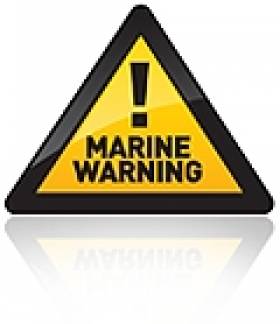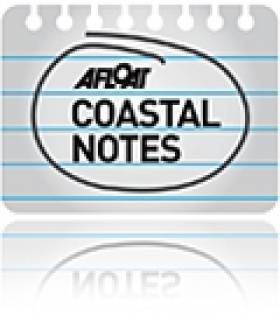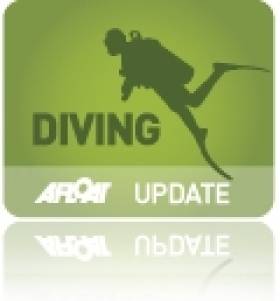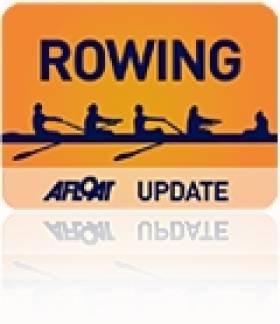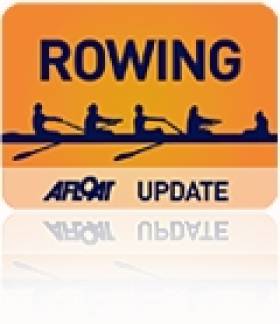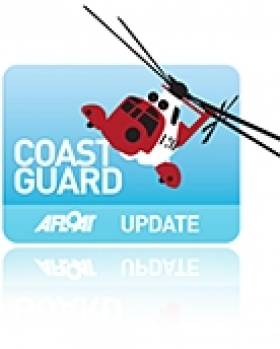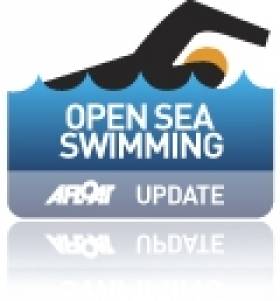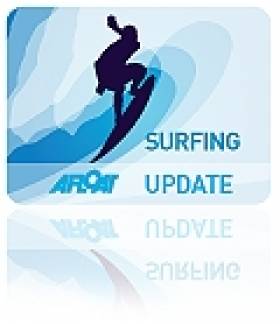Displaying items by tag: Cork
#MarineNotice - The Department of Transport, Tourism and Sport (DTTAS) has issued a Marine Notice advising that a hydrographic and geophysical survey operation is taking place off the south coast till 4 June.
The RV Celtic Voyager (Call sign EIQN) - which performed a similar task off the Clare coast last month - is carrying out the survey operations in an area along the Cork coast marked out in Marine Notice No 18 of 2013, a PDF of which is available to read or download HERE.
The vessel will be towing a magnetometer sensor with a single cable of up to 100m in length. As usual, the vessel will display appropriate lights and markers, and will be listening on VHP Channel 16 throughout the project.
'Wild Atlantic Way' Coastal Tourism Route Launched
#CoastalNotes - Minister of State for Tourism & Sport Michael Ring today (23 April) unveiled the final route for the Wild Atlantic Way, a new coastal tourism route running from Donegal to Cork.
The minister joined Fáilte Ireland to present the final route to 300 top overseas tour operators attending Meitheal 2013, Ireland’s largest tourism trade fair.
The Wild Atlantic Way will be Ireland’s first long-distance driving route, stretching from the Inishowen Peninsula in Donegal to Kinsale in Co Cork, and offering future visitors an opportunity to discover the west coast.
The 2,500km final route was unveiled following a comprehensive public consultation process and includes 156 strategically placed discovery points for tourists along the way.
While the route unveiled today comprises the main spine of the Wild Atlantic Way, a series of looped itineraries off the spine are also planned to further develop the experience for visitors.
Speaking today, Minister Ring said: “The Wild Atlantic Way is a very exciting project and I’m certain it will be a major tourism attraction. But to make it happen we all need to get on board.
"There has been a great response so far and I’m encouraging tourism operators, local authorities, business people and residents to stay involved to get this over the finishing line."
Overseas tour operators were given an advance ‘sneak-peek’ of the route last night at a Fáilte Ireland welcome event in the Convention Centre Dublin when they were treated to the premiere of the video trailer above to show them just what their clients can expect along the route from next year on.
Paddy Mathews, manager of destination development with Fáilte Ireland, believes the project will be a great addition to what Ireland has to offer visitors.
“Developing a route like this is an important part of ensuring Ireland is able to provide visitors with an unforgettable experience," he said. "It will open up a huge number of towns and attractions to them and showcase the scenery and unique culture of the West Coast of Ireland providing easy access to a range of experiences along the route.
“Now that the route has been finalised we will be focusing our efforts on turning all this preparatory work into a reality – an international driving route to rival the best in the world.”
Fáilte Ireland has been working with all the local authorities along the West Coast as well as the leader companies, Údaras na Gaeltachta and the Western Development Commission.
Full details of the Wild Atlantic Way are available on the Fáilte Ireland website HERE.
Irishman Drowns While Diving Off Thailand
#Diving - The Irish Times reports that an Irishman has died in a diving accident in Thailand.
Twenty-nine-year-old Colin Callanan from Cork drowned off the island of Koh Tao off the east coast of the South East Asian country on Friday 12 April.
The exact circumstances surrounding his death have not yet been announced.
Callanan was diving in his spare time while on a work trip to the country. He had been based in Perth, Australia for the last six years, and was employed by an air conditioning firm since 2010.
The Irish Times has more on the story HERE.
Skibbereen and Universities' Regatta Fall Foul of Weather
# ROWING: Skibbereen Regatta and the Irish Universities’ and Schools’ Championships, scheduled for Sunday and Saturday respectively, have been postponed. Faced with the forecast of high winds and rain at the National Rowing Centre, the organisers of both events opted to seek a new date. The Domestic Events Committee of Rowing Ireland will make any decision on a new position in the calendar for the regattas.
Skibbereen Regatta was set to open the eFlow Grand League series. The event had a huge entry and was to run from 7.15 am to 6.15 pm.
Cork Head a Happy Hunting Ground for Local Crews
# ROWING: Cork Boat Club had a string of wins at the Cork Head of the River at the Marina on Saturday. Their senior eight were the fastest crew of the day. John Keohane of Lee Valley was the top single sculler.
Cork Head of the River, Saturday (Selected Results)
Men
Eight – Senior (Head One): 1 Cork BC 12:44.6, 2 Putney Town 13:57.1. Inter One (Rolling hd): Muckross 14:28.3. Novice (Hd 1): UCC 13:36.3. Junior 18A (Hd 1): Presentation 13:26.4. Jun 16 (Hd 1): 14:46.7. Masters (Hd 6) Putney Town 15:22.7
Fours – Inter, coxed: Fossa 15:44.3. Novice, coxed: UCC 15:56. 2. Junior 18A (Hd 3): Presentation 15:33.1. Masters, coxed (Hd 6) Shandon 17:45.4.
Sculling, Quadruple – Senior (Hd 4): Cork BC 16:08.4. Jun 18A (Hd 4): Lee 14:29.2. Jun 16, coxed (Hd 4): Clonmel 15:50.5. Masters, coxed (Rolling Hd) 16:45.6.
Double – Senior (Hd 6): UCC 15:15.1. Inter One (Hd 6) 14:43.1. Novice (Hd 6): Cappoquin 15:47.7. Jun 18A (Hd 6) Shandon 14:30.5. Jun 16 (Hd 6) Killorglin 18:11.0. Single – Senior (Hd 2): Lee Valley (J Keohane) 15:19.6. Intermediate: UCC (McGuckin) 16:13.4. Novice (Hd 2): UCC (Stanton) 16:35.8. Junior 18A: Shandon (Harrington) 15:32.8. Junior 16 (Hd 2) Castleconnell (Whittle) 16:43.0. Masters (Rolling Hd) Shandon (Smith) 19:04.7.
Women
Eight – Intermediate One (Hd 4): Cork BC 16:56.4. Novice (Hd 4): UCC 18:21.9. Jun 18A (Hd 4): Shannon 16:58.1. Jun 16 (Hd 4) Shannon 17:38.7.
Four – Senior (Hd 6) Cork BC 15:09.9. Inter, coxed (Hd 6): Cork BC 17:13.8. Novice, coxed (Hd 6) UCC 27.17.4. Jun 18A (Hd 6): Shannon 16:26.1.
Pair – Senior: Cork BC 18:02.7. Junior 18A: Shandon 18:383.
Sculling, Quadruple – Junior 18A (Hd 1): Cork BC 14:45. Novice, coxed (Hd 1): Cork BC 16:04.7. Jun 16, coxed: Killorglin 16:44.7.
Double – Intermediate One (Rolling Hd): Cork BC 16:46.4. (Hd Three): UCC 18:33.8. Novice (Hd 3): Skibbereen 19:25.7. Jun 18A (Hd 3): Cork BC 18:06.0. Jun 16 (Hd 3): 19:05.7.
Single – Jun 18 A (Rolling Hd): Muckross (Hickey) 20:39.5.
Cork To Host Workshop On EU 'Blue Growth' Strategy
#MarineResources - The fifth and final Regional Consultative Atlantic Forum Workshop will be held at University College Cork from 4-5 March 2013.
Following previous workshops in Horta, Brest, Bilbao and Cardiff, the two-day event will input to the definition of the European Union Strategy for the Atlantic Action Plan (2014-2020).
Blue growth and creating sustainable jobs are at the heart of the Atlantic Action Plan, which will focus on harnessing the enormous untapped economic potential of Atlantic coasts, seas and oceans.
According to the Marine Institute, ocean energies, seabed mining, marine biotechnology and other emerging sectors, as well as a revitalisation of traditional activities such as fisheries, aquaculture and tourism – driven by research, technology and innovation – can contribute to the development of a 'blue economy' in Europe that can provide jobs and spur economic growth.
New advances in science and technology place us in a unique position to benefit from the sea's economic potential in a sustainable manner, the institute adds.
Implementation of the Atlantic Action Plan may be co-funded through a variety of member state and EU funds (Cohesion Funds, INTERREG-V, EMFF, Horizon 2020, etc) as well as via the European Investment Bank and Public-Private Partnerships.
The Cork workshop will be opened on Monday 4 March by Marine Minister Simon Coveney and Lowri Evans, EU Director General for Maritime Affairs and Fisheries (director general, MARE). Day 1 will include parallel sessions to address the Research and Innovation and Atlantic Ports components of the Atlantic Action Plan. Day 2 will provide an overview of the Atlantic Action Plan including priorities, funding and implementation.
Speakers will include the director general of MARE and representatives of REGIO, RTD, MOVE, the European Investment Bank, European Parliament, Committee of the Regions, Economic and Social Committee as well as member state and regional representatives.
The Atlantic Action Plan aims to create sustainable jobs and growth by bringing together the five EU countries with an Atlantic coastline (France, Ireland, Portugal, Spain, United Kingdom) plus regional and local authorities, business and other stakeholders to identify key investment and research priorities, as well as concrete co-funded project ideas.
For further information, workshop programme and registration click HERE.
Coastguard Helicopter In Double Rescue On Sunday
#Coastguard - The Irish Coast Guard's Waterford-based rescue helicopter recovered two casualties in separate incidents on Sunday, according to the Irish Examiner.
One fisherman was retrieved from the French fishing vessel Larche some 50 nautical miles south of Cork after complaining of chest pains and difficulty breathing.
The man was winched on board coastguard helicopter Rescue 117 and transferred to hospital in Cork for treatment.
In a separate incident, a hillwalker was airlifted from Slievenamon in Tipperary after suffering leg injuries in a fall - the second such accident in the area over the weekend.
Corkman Is Open Sea Swimming's Man Of The Year
#Swimming - Cork swimmer Steve Redmond has been named World Open Water Swimming's Man of the Year for 2012 for his record-breaking triumph in the Oceans7 Challenge last summer.
As the Southern Star declares: "Few individuals in the history of open water swimming have carried the heavy physical, mental, emotional and financial burdens that Stephen Redmond heaped upon his broad shoulders in 2012."
It marked the third year in a row that Redmond was nominated for the international award.
The Corkman had already conquered many of the world's toughest marathon swims - such as becoming the first person ever to swim from Baltimore to Schull around the Fastnet Rock - before setting sights on the Oceans7 Challenge, the open sea swimming equivalent of climbing the world's seven highest peaks.
As previously reported on Afloat.ie, he completed the final leg of the challenge when he crossed Japan's Tsugaru Strait in mid July, beating Australian marathon swimmer Penny Palfrey to the coveted accolade.
Ballinspittle a Popular Haunt for Surfing Crowd
#SURFING - The Irish Examiner reports on the "little economic miracle" that is Ballinspittle in Co Cork, a village that's "bucking the national economic trend" via its plethora of local businesses - and its close proximity to quality surf.
The village has "witnessed a inflict of Australians and South Africans" among others "in search of a surfing haunt", thanks to the nearby Blue Flag beaches at Garrettstown and Garrylucas.
John Hynes, who runs the surfing school GTown Surf, says Cork's coast is "one of the most consistent stretches in the south" that's "perfect for budding surfers. So, there's no excuse for not getting out there and enjoying the waves."
The Irish Examiner has more on the story HERE.
Cork Hosts Conference on Maritime Crime
#MARINE CRIME - TheJournal.ie reports that investigators the world over are gathered at the Silver Springs Moran Hotel in Cork for a conference on maritime crime. Scroll down for photos of the event by Bob Bateman below.
The International Association of Marine Investigators conference - now in its 15th year - will be discussing topics from drug imports to accident reconstruction.
The full conference agenda is available to read or download HERE.
The I.A.M.I, (Irish Association of Marine Investigators) Conference moved this morning to the premises of Marine Motors, Passage West Co. Cork, where they were welcomed on behalf of Passage West Town Council by Councillor Marcia D'Alton who gave the delegates a very interesting address on Passage West and it's long history of Maritime Associations. She also spoke of the relationship with the first steamship to sail the Atlantic from Passage West under Captain d'Esterre Roberts one of whose direct descendants, Grattan d'Esterre Roberts was also present. Also in attendance were Gerry Greenway, Manager Revenue Maritime Operations, Kevin Higgins of Marine Motors, Michael O'Donovan of Oysterhaven Boats and Robert Kennedy of O'Leary Insurance Insurances Ltd.
Sergeant Liam Grimes of the Garda Water Unit explained the hugely important function of the Association and the co-operation and exchange of information that exists throughout Europe between European Marine Police Units and European Marine Insurance Investigators in their endeavours to combate the ever escalating theft of boats, engines and all marine equipment. Their presentations and methods of detection explained were most interesting to listen to.
The Conference consists of workshops and presentations from all units including the Garda water unit. The Water Unit incorporates the Garda Sub Aqua Unit and this year alone attended the Volvo Ocean Race at Galway, the Tall Ships Race in Dublin and Cork Week to name but a few. They attended events right around the coast and are now based in Athlone. The Conference was opened yesterday at Silversprings Moran Hotel by Cork Chief Superintendent Tom Hayes. It is thefifteenth Annual Conference of the Association and the first to be held in Ireland and by all accounts has proven to be highly successful and enjoyable. It concludes this evening with a function at Silversprings Moran Hotel.
Additional reporting by Claire Bateman


























